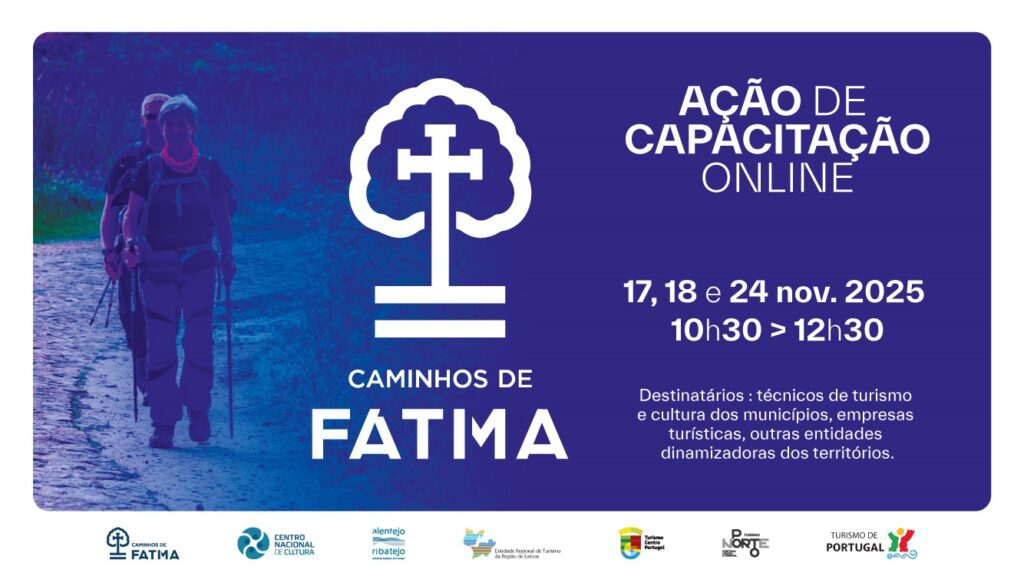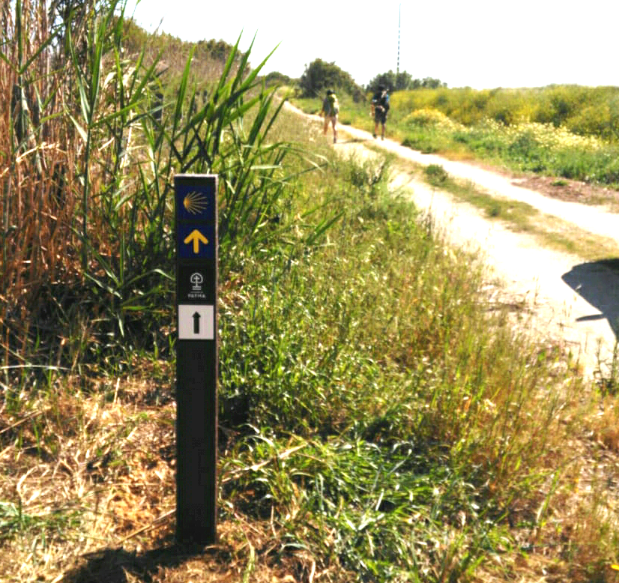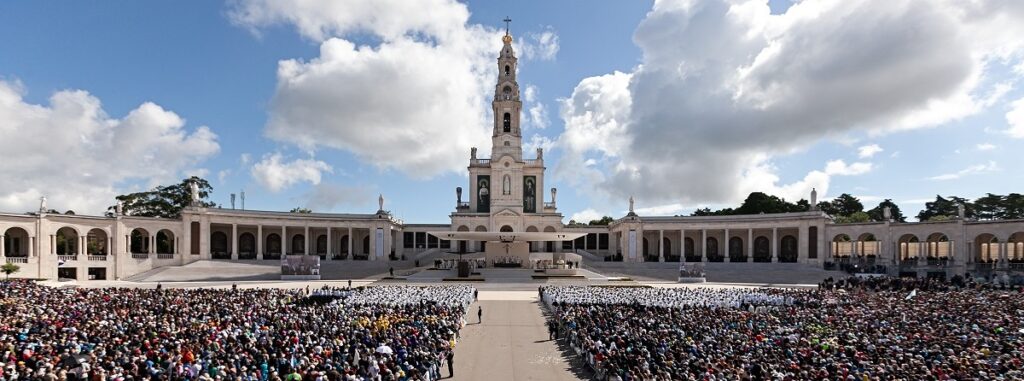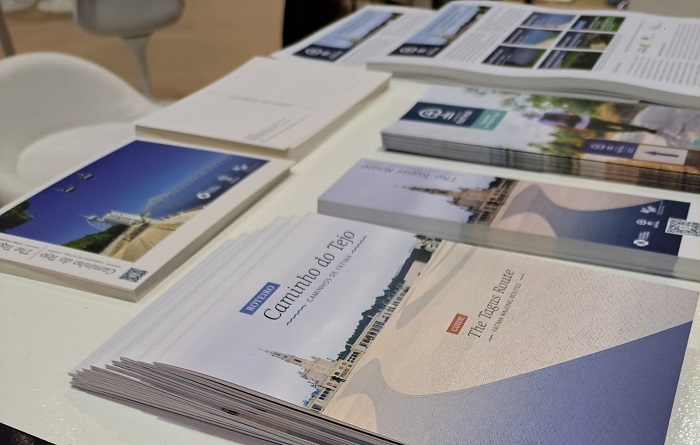Pope Francis: we are pilgrims, walking brings us closer to God and the lives of others
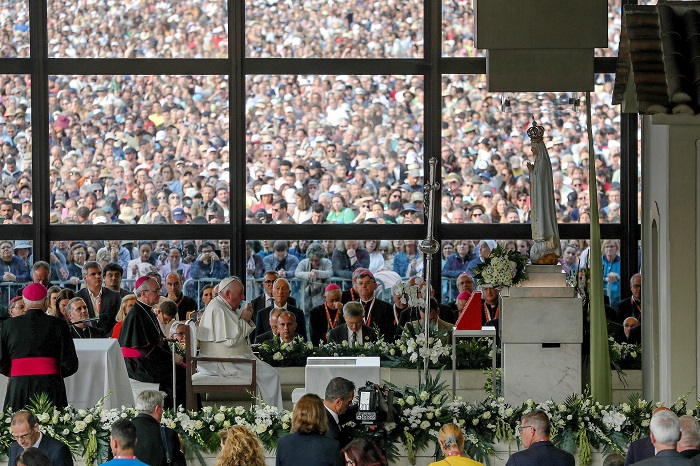
We publish the full text of Francis’ preface to the book “Faith is a journey”, an anthology of the Pontiff’s meditations for travelers and pilgrims published by the Vatican Publishing House in view of the Jubilee.
When I was a priest in Buenos Aires, and I kept up this habit even as a bishop in my hometown, I loved walking through the various neighborhoods to visit my fellow priests, visit a religious community or chat with friends. Walking is good for us: it puts us in touch with what is happening around us, it makes us discover the sounds, smells and noises of the reality that surrounds us, in short, it brings us closer to the lives of others.
To walk is not to stand still: to believe means to have a restlessness inside us that leads us to “more”, to one more step forward, to a height to reach today, knowing that tomorrow the path will take us further – or deeper, in our relationship with God, which is exactly like the relationship with the loved one in our life, or between friends: never finished, never taken for granted, never satisfied, always in search, not yet satisfactory. It’s impossible to say with God: “It’s done, everything is fine, that’s enough”.
For this reason, the Jubilee of 2025, together with the essential dimension of hope, must lead us to an ever greater awareness that faith is a pilgrimage and that we, on this earth, are pilgrims. Not tourists or wanderers: we don’t move at random, existentially speaking. We are pilgrims. The pilgrim lives his journey under the banner of three key words: risk, effort and goal.
The risk. Today, we find it difficult to understand what it meant for Christians of the past to make a pilgrimage, accustomed as we are to the speed and convenience of our journeys by plane or train. However, setting out on the road a thousand years ago meant running the risk of never returning home because of the many dangers that could be encountered on the various routes. The faith of those who decided to set out was stronger than any fear: the pilgrims of old teach us this trust in the God who called them to set out towards the tomb of the Apostles, the Holy Land or a shrine. We too ask the Lord for a small portion of this faith, to accept the risk of abandoning ourselves to his will, knowing that it is that of a good Father who wants to give his children only what suits them.
Effort. Walking, in fact, means effort. This is well known by the many pilgrims who today have returned to the ancient pilgrimage routes: I’m thinking of the Santiago de Compostela route, the Via Francigena and the various Caminos that have sprung up in Italy, which recall some of the best-known saints or witnesses (St. Francis, St. Thomas, but also Fr. Tonino Bello) thanks to a positive synergy between public institutions and religious organizations. Walking involves the effort of waking up early, preparing a backpack with the essentials, eating something frugal. And then there are the aching feet, the thirst that becomes pungent, especially on sunny summer days. But this effort is rewarded by the many gifts the walker encounters along the way: the beauty of creation, the sweetness of art, the hospitality of people. Those who make a pilgrimage on foot – and many can testify to this – receive much more than the effort made: they establish beautiful bonds with the people they meet along the way, they experience moments of authentic silence and fruitful interiority that the frenetic life of our time often makes impossible, they understand the value of the essential rather than the brilliance of having everything superfluous but lacking the necessary.
The goal. Walking like pilgrims means that we have a point of arrival, that our movement has a direction, an objective. To walk is to have a goal, not to be at the mercy of chance: those who walk have a direction, they don’t go round in circles, they know where to go, they don’t waste time wandering from place to place. That’s why I’ve often recalled how similar the act of walking is to the act of being faithful: whoever has God in their heart has been given a polar star to follow – the love we receive from God is the reason for the love we have to offer other people.
God is our goal: but we can’t reach him the way we reach a shrine or a basilica. And in fact, as anyone who has been on a pilgrimage on foot knows, finally reaching the desired goal – I’m thinking of Chartres Cathedral, which has long been the subject of a renaissance in terms of pilgrimages thanks to the initiative, dating back a century, of the poet Charles Péguy – doesn’t mean feeling satisfied: or rather, if externally you know you’ve arrived, internally there’s the awareness that the journey isn’t over. Because God is exactly like that: a goal that pushes us further, a goal that continually calls us to go on, because it is always greater than the idea we have of it. God himself explained this to us through the prophet Isaiah: “As the heavens are above the earth, so my ways are above your ways, and my plans are above your plans” (Is 55:9). With God we can never say that we have reached him, we never arrive at him: we are always on the move, we are always in search of him. This journey towards God offers us the intoxicating certainty that he is waiting for us to give us his consolation and grace.
